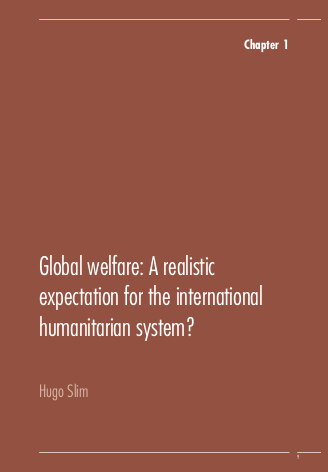
Expectations of international humanitarian aid have changed dramatically in the last twenty years. Aid budgets and aid organisations have got much bigger. Humanitarian action has come to occupy a more central place in world politics, both in the policy of powerful states and in increasingly powerful transnational movements in global society. The practice of humanitarian action – its values and its technique – is seeking to become more professionalised. The growing adoption of a political theory of rights, rather than charity, to justify humanitarian action has newly politicised humanitarian help in the minds of givers and receivers alike, both of whom increasingly expect aid to be given as an obligation under international law. In many ways, this growth can be interpreted as the emergence of a nascent global welfare system around war and disaster.
